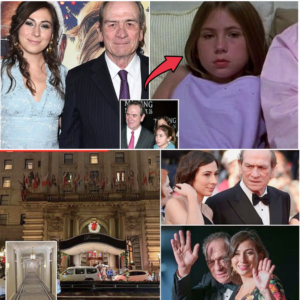In a twist that has sent ripples through Wall Street and the electric vehicle world, Tesla’s Senior Vice President, Xiaotong “Tom” Zhu, has sold over 82% of his Tesla shares between 2023 and 2024, a move that has sparked intense speculation about the company’s inner workings. Meanwhile, Tesla’s enigmatic CEO, Elon Musk, has taken to X with a fiery warning to short sellers: “If they don’t exit their short position before Tesla reaches autonomy at scale, they will be obliterated.” With share sales ranging from $174 to $323 each, Zhu’s dramatic divestment and Musk’s bold rhetoric have set the stage for a high-stakes showdown, raising questions about Tesla’s future and the race to achieve full autonomy. Is this a sign of wavering confidence, or is Musk’s vision of a driverless future about to change the game?
Tom Zhu’s Massive Sell-Off: A Cause for Concern?
Tom Zhu, often dubbed Tesla’s “No. 2” behind Musk, is no ordinary executive. Born in China and now a New Zealand citizen, Zhu’s rise at Tesla has been meteoric. Joining the company in 2014 to build its Supercharger network, he quickly became a linchpin in Tesla’s global expansion, spearheading the Shanghai Gigafactory’s transformation into the company’s most productive plant. By 2023, Zhu was promoted to oversee global automotive production, sales, and service, making him one of the most powerful figures in Tesla’s hierarchy. His work ethic—sleeping in factories during Shanghai’s COVID lockdowns—earned him Musk’s praise and a reputation as a relentless operator.
So why did Zhu sell over 82% of his Tesla shares, reducing his holdings from more than 81,000 shares to under 15,000? According to regulatory filings, the sales, executed between 2023 and 2024, netted Zhu millions at prices ranging from $174 to $323 per share. The scale of the sell-off has raised eyebrows, with analysts like GLJ Research’s Gordon Johnson calling it “alarming” and questioning insider confidence in Tesla’s future. For a company whose stock has been a rollercoaster—down 16% in 2025 despite a 68.5% surge over the past year—Zhu’s move has fueled speculation. Is he cashing out at a peak, or is this a personal financial decision unrelated to Tesla’s trajectory?
Investors are rattled, and social media is abuzz. “When your top exec dumps 82% of his stake, it’s hard not to wonder what he knows that we don’t,” one X user posted. Others argue Zhu’s sales reflect diversification, a common move for executives with concentrated wealth tied to one stock. Zhu, who lives modestly in a government-subsidized apartment near the Shanghai Gigafactory, hasn’t commented publicly, leaving the market to dissect his motives. The timing is particularly striking, coming as Tesla faces mounting pressures: declining sales, intensifying competition from Chinese automakers like BYD, and a stock price that’s taken a 20% hit since January 2025.
Musk’s Battle Cry: Autonomy or Bust
While Zhu’s share sales have sparked doubt, Elon Musk is doubling down on optimism, particularly about Tesla’s quest for full autonomy. In a series of posts on X, Musk warned short sellers—investors betting Tesla’s stock will fall—that they face “obliteration” once the company achieves “autonomy at scale.” This isn’t Musk’s first rodeo with short sellers. His feud with Microsoft co-founder Bill Gates, who reportedly lost $1.5 billion on a short position against Tesla, is legendary. “If Tesla becomes the world’s most valuable company by far, that short position will bankrupt even Bill Gates,” Musk quipped in 2023, a sentiment he’s now amplifying.
Musk’s confidence hinges on Tesla’s Full Self-Driving (FSD) technology, which he sees as the key to unlocking unprecedented value. Tesla’s vision is bold: a fleet of autonomous vehicles operating as robotaxis, part of a “Tesla Network” ride-hailing service unveiled in concept form in October 2024 with the Cybercab and Robovan. Musk claims that once FSD achieves scale—potentially deploying millions of driverless cars globally—Tesla’s valuation could soar past $1 trillion again, a milestone it briefly hit in 2021 and early 2025. “If someone doesn’t believe Tesla can solve autonomy, they shouldn’t be an investor,” Musk declared in a 2024 earnings call, a stance he’s reiterated amid Zhu’s sell-off.
Recent milestones fuel Musk’s bravado. In June 2025, a Tesla Model Y drove itself from the Austin Gigafactory to a customer 30 minutes away with no human intervention, a feat Musk celebrated on X as “FULLY autonomous!” Tesla’s robotaxi trials in Austin, offering paid rides to select enthusiasts, have generated buzz, though videos reveal glitches—sudden braking, drop-offs in intersections, and safety monitors intervening. Despite these hiccups, Musk insists Tesla is on the cusp of a breakthrough, with plans to roll out FSD in China and Europe pending regulatory approval.
A Tale of Two Narratives
The contrast between Zhu’s share sales and Musk’s bullish warnings creates a split-screen moment for Tesla. On one hand, Zhu’s divestment suggests caution, possibly signaling doubts about Tesla’s ability to deliver on Musk’s ambitious timelines. The company has faced setbacks: vehicle deliveries dropped to 1.79 million in 2024, down 1.1% from 2023, missing Musk’s “slight growth” target. The Cybertruck, plagued by recalls, remains a niche product, and Tesla’s aging lineup—dominated by the Model 3 and Model Y—struggles against competitors like BYD and Volkswagen. Add to that a Delaware court’s rejection of Musk’s $56 billion compensation package in December 2024 and a consumer backlash tied to his political role in the Trump administration, and Tesla’s path looks rocky.
On the other hand, Musk’s focus on autonomy paints a revolutionary future. Tesla’s stock, despite its 2025 dip, has climbed 6.1% in recent sessions, buoyed by optimism about FSD and new revenue streams like the North American Charging Standard, adopted by most major EV makers by 2025. The company’s $97.69 billion in 2024 revenue and its trillion-dollar market cap earlier this year underscore its dominance, even as profits shrink due to price cuts and R&D costs. Musk’s warning to short sellers, backed by a list of hedge funds like Jane Street Group ($2.77 billion short) and Citadel Advisors ($1.38 billion), is a dare: bet against Tesla at your peril.
The Bigger Picture: Confidence or Caution?
Zhu’s share sales aren’t the only insider move raising questions. Tesla’s history of executive turnover and Musk’s distraction with ventures like X and his role co-leading Trump’s Department of Government Efficiency have strained investor patience. Zhu, who returned to a global operations role in 2025 after focusing on China’s FSD rollout, remains a key figure, overseeing factories in Fremont, Texas, and Shanghai. His sales could be pragmatic—funding personal ventures or diversifying wealth—but their scale and timing amplify concerns, especially as Tesla navigates macroeconomic headwinds and regulatory scrutiny over FSD’s safety.
Musk, meanwhile, is all-in on autonomy as Tesla’s salvation. His vision of a driverless future, where Teslas ferry passengers via a ride-hailing network, could redefine the auto industry. But the road is fraught with challenges: technical hurdles, regulatory battles in the U.S. and abroad, and public skepticism about FSD’s reliability. A class-action lawsuit in California, greenlit in 2025, accuses Musk of exaggerating FSD’s capabilities, adding legal pressure. Analysts like Ronald Jewsikow question whether Tesla can deliver on Musk’s timelines, citing years of delays on projects like the Cybertruck and Tesla Semi.
What’s at Stake?
The clash between Zhu’s sales and Musk’s warnings encapsulates Tesla’s high-stakes moment. For investors, it’s a choice between trusting Musk’s vision or heeding signals like Zhu’s divestment. Short sellers, holding billions in bets against Tesla, face a potential reckoning if FSD succeeds, but Zhu’s move suggests even insiders might be hedging their bets. Social media is ablaze with reactions: “Musk’s talking a big game, but Zhu’s cashing out. Who do you believe?” one X user asked. Another quipped, “If autonomy’s so close, why’s Tom Zhu running for the exit?”
As Tesla pushes toward a driverless future, the world is watching. Will Musk’s gamble pay off, turning Tesla into the world’s most valuable company and crushing short sellers? Or will Zhu’s share sales prove prescient, signaling turbulence ahead? One thing is certain: in the saga of Tesla, where ambition meets uncertainty, the stakes have never been higher.


